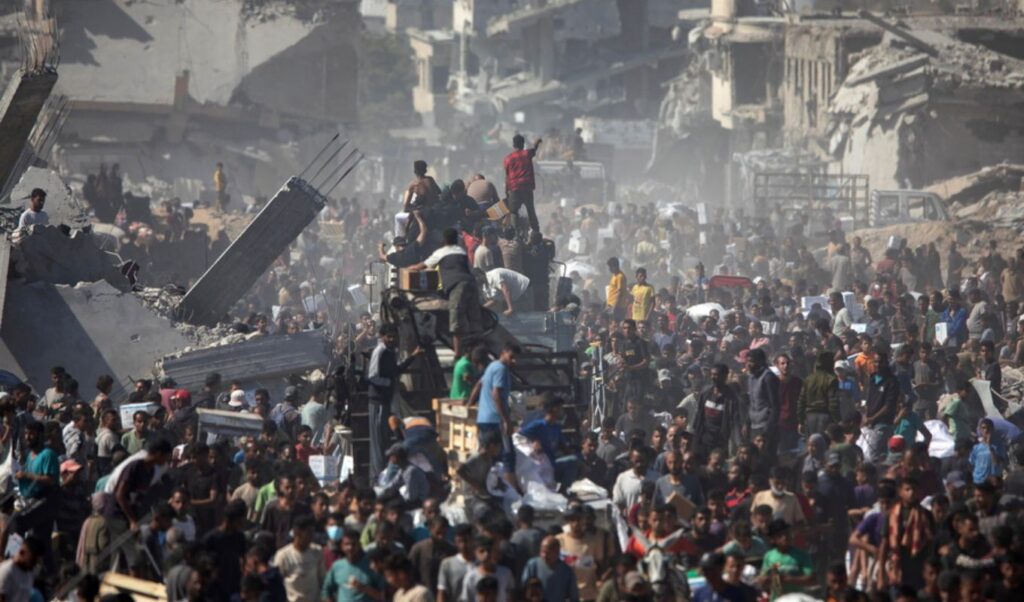The planet is turning its gaze to the day after the ceasefire in the Middle East, trying to see the silencing of weapons in practice and the fulfillment of Donald Trump’s statement to the Knesset that “this is the historic dawn of a new Middle East.” Greece, within this climate, was called to participate in the International Summit in Sharm El Sheikh, Egypt, where the foundations of the second phase of the ceasefire agreement were laid. Everyone is now seeking the role that our country is called to play in the day after the agreement. According to Professor of International Relations at Panteion University Dimitris Kairidis, who spoke to parapolitika.gr, our country’s participation “shows exactly the increased interest and the increased role and participation that the Greek side has in developments. Greece will participate in the reconstruction of Gaza and will participate both bilaterally as Greece, and multilaterally through the European Union. And of course it has a series of things that interest it, such as Christian populations, such as the strategic relationship with Israel, such as relations with the Arabs and so on. From there on, the day in Egypt belongs, if not 100%, 99% certainly to Donald Trump and all other leaders participate. But the protagonist, the only protagonist not to be confused, is Donald Trump.”
The Gaza ceasefire and truce, however long it lasts, is expected to positively affect Greek interests in the region. As Mr. Kairidis argues, “we were emphatically requesting the ceasefire. And as long as hostilities continued and the humanitarian disaster in Gaza deepened, the more Israel appeared internationally isolated. Something that was a problem for us, because we have a strategic relationship with Israel and we don’t want a Europe-Israel rupture, since after the recognitions of the Palestinian State by our European partners there was a surrounding discussion about sanctions. Something we are opposed to, but pressure had begun to build. So the fact that we are leaving this dangerous zone is positive.”
And while everyone is seeking the role each country will play the day after the ceasefire, thought and concern revolves around the question of whether peace has truly come to the Middle East. Mr. Kairidis expresses his pessimism: “There is no doubt that the ceasefire and the exchange of hostages, the return of hostages, is a very positive development. However, excessive optimism that peace has suddenly come to the Middle East would be wrong. There are many things that need to be done and many obstacles. And in a sense, the establishment of a Palestinian State has never been further away than today. Because so much poison has been spilled, the situation has become so polarized. The Palestinians return to Gaza in absolute destruction.
Already yesterday Hamas deployed 7,000 fighters declaring itself present and not absent from developments. And of course in Israeli public opinion there is enormous distrust in the prospect of creating a Palestinian State that for them appears will not be democratic and peaceful, but will be controlled by terrorists either of Hamas or whatever else emerges. Consequently, there must be continuous intervention by the international factor and the Americans in order to safeguard conditions of trust, some confidence building, to open the path toward normality. And of course billions must be spent on Gaza’s reconstruction. This technocratic government that Trump’s plan envisions must have political support at least within the Palestinian community, and after all this is done, we go to the even more difficult issue, which is not Gaza, but the West Bank, the settlements and everything else happening there. So we have a very long way to go.”




